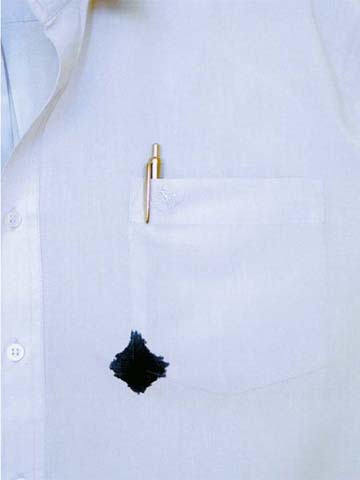
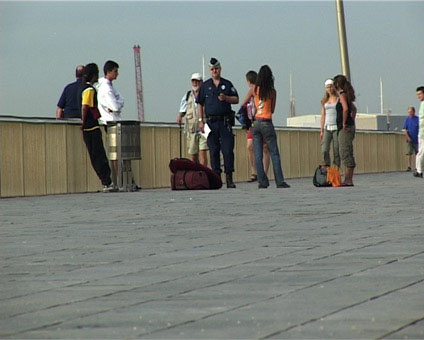
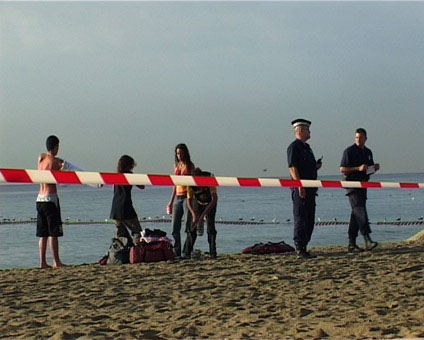

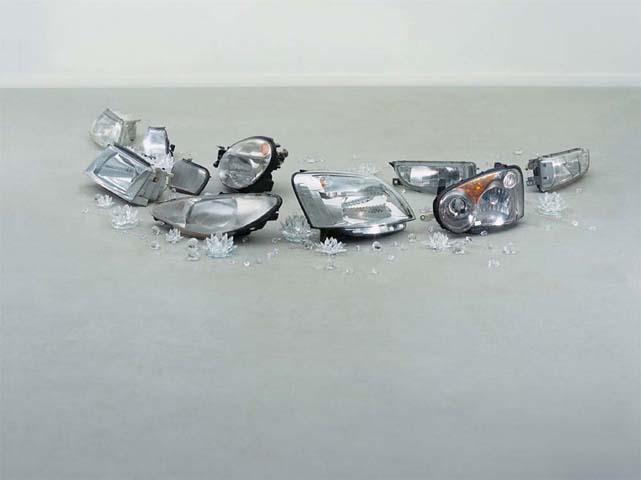
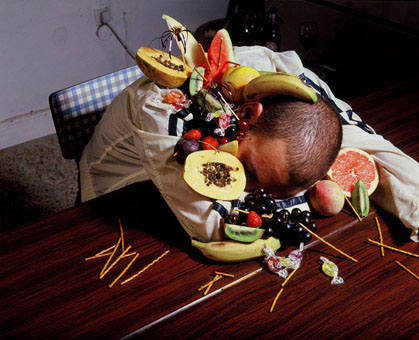
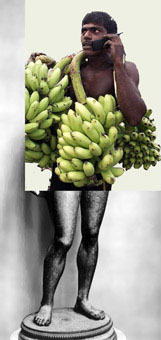







| Untitled |
|
Shown in the exhibition Passer By Rabina was one of two Israeli artists chosen for a Barcelona residency and exchange program. He stayed in Barcelona during July, 2006, shortly before fellow Israeli artist HYPERLINK Koby Levy. Detail 1 documents a minor incident on the Barcelona beach. A few of young tourists, blissed out in face of the horizon, are banished by police at dawn. The unmoving camera captures the delicate dismantlement of their temporary camp. The night is over, and the group of youngsters is dispersed. Many "settlements" insist on continued existence, but communities based on emotion and driven by opportunities presented by the economy of desire submissively accept their own impermanence. Politics is translated into a miniature sexual choreography. |